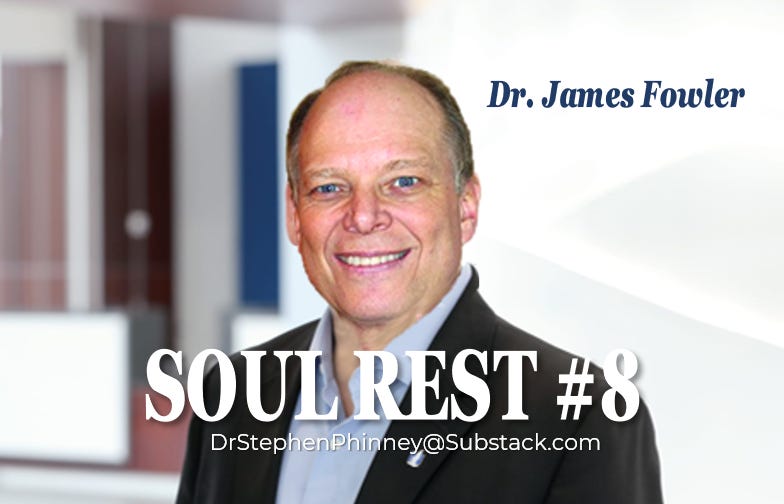DR. JAMES FOWLER: Soul Rest (Part 8)
Many Christians seem to fight a constant battle with their emotions, which they regard as the culprits that keep them stirred up and disturbed.
Dr. James Fowler is one of the leading authors on the believer’s union with Christ. He has written 20+ books on the topic. He is a theologian, Board Member of IOM America, and dear friend of Dr. Stephen Phinney. He is the founder of Christ in You Ministries. We hope you are blessed by his series, “Soul Rest.”
SOUL REST IN THE EMOTIONS
Emotions should not be considered as agitating enemies in our souls. Our emotions are not irritants that serve to "bug us" like pesky gnats. Emotions are not separate entities or powers, and are not essentially good or evil, but can be pervaded and activated by sinful or godly character.
God created all humans with the ability to experience emotion. The English word "emotion" is derived from the Latin, exmovere, which means, "to move out." Emotions allow us to be moved, aroused, invigorated, and enlivened. To be fully human, as God intended, we need to experience sensation, affection, fervor, enthusiasm, and passion.
Without emotions life would lose its luster - there would be no thrill of excitement, no flush of embarrassment, no frustration of failure, no wonder and amazement of that which is around us and beyond us. We should embrace our emotions, and allow them to provide passion in our lives.
Emotions sometimes seem to be so spontaneous and overpowering, overwhelming us suddenly and even violently. They are not demons, however, but are integrally connected to the rest of our being (psychologically and physiologically). In particular, emotions connect with our thoughts and attitudes. People usually feel what they think. For example, if a person feels inferior, it is based on established attitudes about their identity. Some seek to blame the events of life for arousing their emotions, but events do not produce emotion. We cannot say, "That situation or that person made me angry." We have to own our own anger. The situation simply allows established attitudes comprised of expectations, assumptions and perceptions, to bring forth emotional reaction. In his Meditations,13 Marcus Aurelius (2nd century AD) wrote, "If you are pained by an external thing, it is not the thing that disturbs you, but your judgment about it."
Modern psychology is preoccupied with emotions, advocating that people "get in touch with their feelings," and "be true to their feelings." With the prevailing philosophical outlook moving towards "postmodernism," there is an extremely subjective orientation that evaluates everything by the emotional effect that it has on people, and often denies objective reference. This is not unlike the older "romanticism" that was the antithetical extreme of "rationalism." As Christians, we want to avoid both the rationalism of the mind and the romanticism of the emotions, in order to allow for the expression of the Christ-life through our thoughts and feelings. Wait, there’s more…
Keep reading with a 7-day free trial
Subscribe to Eschatological Studies | The End Times Chronicles to keep reading this post and get 7 days of free access to the full post archives.



